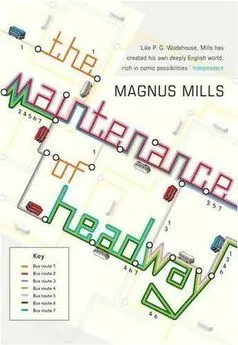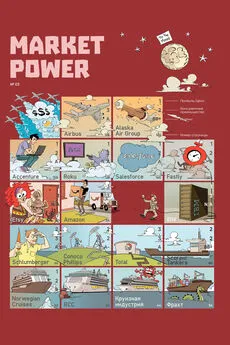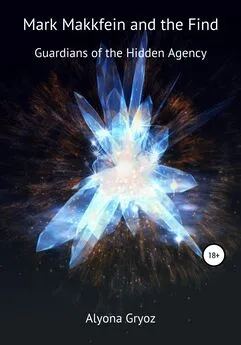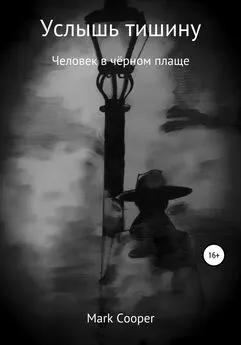Mark Mills - Amagansett
- Название:Amagansett
- Автор:
- Жанр:
- Издательство:неизвестно
- Год:неизвестен
- ISBN:нет данных
- Рейтинг:
- Избранное:Добавить в избранное
-
Отзывы:
-
Ваша оценка:
Mark Mills - Amagansett краткое содержание
Amagansett - читать онлайн бесплатно ознакомительный отрывок
Интервал:
Закладка:
Hendrik Morgan was one of them.
He was sitting out front of the two-room shack his father had first built, knitting a funnel for a lobster pot. More pots were stacked around him. Straggly shrubs demarcated the small patch of shingle that was the front garden, and a weather-beaten vine clung precariously to the side of the building. These few plaintive stabs at adornment were undermined by the rancid stench of bait fish setting in a barrel nearby.
‘ Goddag. ’
Hendrik looked up and smiled. ‘ Hej. ’
‘How’s it going, Hendrik?’
‘Good,’ he said, getting to his feet. ‘Good.’
He took Conrad’s hand warmly, clamping his other hand on top. He stood at least as tall, his lank blond hair flopping in front of his blue eyes.
‘You got time for a cold one?’ asked Hendrik.
‘Sure.’
Hendrik headed inside, returning a few moments later with another chair and a couple of bottles of beer. He popped the tops and they settled down in the sunshine, looking out over the
bay.
‘How’s the lobstering?’ asked Conrad.
‘Easier now I got me a new boat.’
‘Yeah?’
‘The Alice T, a thirty-foot western-rig out of Stonington. Got a fair few miles on her keel, and trims a little heavy by the stern when loaded, but she’s a real beauty.’
‘How many pots you fishing?’
‘Hundred and fifty, more on the way.’ He nodded at the oak laths and other lobster-pot stock piled up nearby. ‘Two hundred and fifty should do it.’
‘And some.’
‘Yeah, first year back’s been good to me.’
‘You deserve it.’
Hendrik smiled. ‘Wish it worked like that, but we both know it don’t.’
Hendrik’s family had been plagued by a run of mud-luck for well over a decade. The Depression had been tough on everyone, but it had coincided with a sharp drop-off in the lobsters, obliging Hendrik and his father to abandon their operation for other work, chopping wood for the WPA and filling ruts for the Highway Department—anything to scrape together a few precious dollars a day. This was how Conrad and Hendrik had first got to meet, odd-jobbing in East Hampton one winter, thrown together in the gardens of city people, spreading manure on the flower borders, the heat rising up through their boots. Left to his own devices, Hendrik would take every opportunity to snoop around the summer homes. He claimed he never touched anything, though how he came across the selection of riding crops tucked beneath the bed of a well-known movie actress remained to be answered; and there was always a faint but distinct whiff of mothballs about him whenever he returned from his prowls.
From shoveling shit in East Hampton they had moved to the woods north of Amagansett where they felled oaks for a couple of months, reducing the trees to cords of wood. Then it was on to Promised Land where they tarred the roof joins on the fish-factory buildings at Smith Meal, daubing obscene doodles—only visible from the air, they calculated—to relieve the monotony. When the shimmering pods of menhaden reappeared in late spring, they descended from their lofty perch and lugged hundredweight sacks of fish meal, still blisteringly hot from the driers, out to the box cars on the railroad siding. The only white men in the human chain of seasonal southern workers, they soon picked up the songs and learned to take the ribbing in good humor.
They grew tight, sharing stories as they toiled. Hendrik’s father was a tough little Welshman who had ended up in Montauk by way of Nova Scotia. It was here that he met his bride, Hulda, a towering Swedish blonde who waitressed at Parson’s Inn. It was a typical tale of Montauk folk: two people from different corners of the world, thrown together at this windblown outpost. There were Norwegians and Finns, Spaniards, Danes, Dutch and Portuguese. Many of the Italians had worked on the Long Island Rail Road, laying the final miles of track out to Montauk, only to marry and settle down. There were workmen left over from Carl Fisher’s doomed enterprise to develop Montauk, and there were Navy men left over from both wars. Then there were the Irish of course, not for any particular reason, just because they seemed to turn up pretty much everywhere.
Many in East Hampton and Amagansett looked down on the tatty little community of transients, apparently forgetting that their own villages had started life in exactly the same way. It was natural that Conrad and his family take Montauk to their hearts. After all, their story was no different—first-generation immigrants lured to the eastern end of Long Island by a twist of fate. In their case, they owed it all to the intervention of a loose paving stone. If one of the men who made the weekly booze run out to Montauk hadn’t turned his ankle, then Conrad’s father wouldn’t have had to stand in for him, and he would never have set eyes on Amagansett.
Two years into Prohibition, his father and Eusebio had secured a lucrative little slice of the trade in illegal liquor, running the stuff into the city from the tip of Long Island, where the foreign schooners moored just beyond the twelve-mile limit, the booze hustled ashore by a fleet of local boats. On the night in question, Conrad’s father had found himself on the ocean beach at Amagansett, hefting cases of Golden Wedding whiskey into the back of a truck.
The way he told it, he experienced an epiphany of near-religious intensity. As he took in the unbroken strip of moonlit sand backed by dunes, he found himself transported back to his Euzkadi, to the beaches north of Biarritz which he’d fished since childhood. The same ocean, the same waves breaking against an identical stretch of coastline. And he made a vow to himself: if he couldn’t go back to the old country, he would at least return to the old ways. As soon as he had saved up enough money, he would move with his boys to Amagansett and take up fishing once more.
That moment arrived, quite unexpectedly, a few weeks later. While pushing their way along a crowded downtown sidewalk one night, Eusebio yelped then spun around, searching the faces in the throng. He grabbed their father’s arm and urged him to hurry along. Within a block, Eusebio was leaning on him for support, steering him into an alleyway. That’s when their father saw the bib of blood soaking the back of Eusebio’s pants.
It was a warning, a single thrust of a stiletto blade into the back of the thigh; but the assailant had messed up, striking an artery. Eusebio felt the life slowly draining out of him and he began to talk. He admitted that he hadn’t been entirely honest in his dealings with their father, excluding him from certain profits, certain transactions, one of which had just backfired on him. He told their father to disappear, and quickly; it was just a matter of time before the people in question came knocking on his door. He barely managed to reveal the whereabouts of his ill-gotten gains before drifting into unconsciousness. Death followed moments later. Their father left Eusebio where he had fallen, curled on the cobbles. He would have taken his friend’s black Borsalino hat with him, but Eusebio had always joked that he never took it off for fear his Maker wouldn’t recognize him when his time came.
Conrad had a dim recollection of being hauled from his bed in the dead of night, of their father thrusting a thick roll of bills into the hands of a tearful Irena, of being bundled into a car. They woke the next morning to find themselves in a field on the outskirts of Hempstead. By late afternoon they had moved into their rooms on the third floor of Sea View House, the only hotel in Amagansett at that time.
The money from Eusebio was enough to buy a house, a boat and some gear; and their father’s first act on taking possession of the two-story lean-to on Miankoma Lane was to carve his name into the lintel above the front door, according to the Basque tradition.
Their sudden appearance on the scene, to say nothing of their father’s deep pockets, piqued the interest of the community. But suspicion soon gave way to wary acceptance, largely thanks to the intervention of Cap’n Josh. When word trickled through to the old man that the newcomer was a Basque, Conrad’s father was summoned to the Kemps’ large house on Bluff Road. Cap’n Josh’s mother was still alive at the time, though you wouldn’t have known it to look at her, and four generations of the family were living under one roof, the oldest and youngest both in diapers.
The two men retired to the study where they traded stories for most of the evening over a bottle of King George rum. When they finally emerged, Cap’n Josh announced to his sons that the Labarde family was to be welcomed into the fold. He had worked alongside Basques on the whaleships and knew them to be one of the oldest seafaring peoples, God-fearing and hard-working, proud and reserved, their ancient homeland divided by a border not of their choosing.
All this was more than enough to recommend them to Cap’n Josh. However, he did suggest that their father spend that first winter cod fishing with the Kemps. It would give him a chance to learn the ways of the local surfmen.
Antton and Conrad were placed under strict orders to tell no one about the source of their wealth, even when it became clear that many in Amagansett were lining their pockets with booze money. It was an oath Conrad had broken on only two occasions—once with Lillian, the other time with Hendrik.
‘Was that the Demeter I saw out there?’ asked Hendrik, nodding towards the bay.
‘Yeah.’
‘You’ll be wanting a bed for the night, then.’
‘The floor will do.’
‘I got a mess o’ clams and a bluefish needs eating. I’d boil up a lobster, only I’m sick to the hind teeth of the damned things.’
Hendrik cooked up the clam chowder on the kerosene stove, and they ate it off their knees, watching the sun slip behind the bluffs on the western shore of the bay.
‘Heard you had a run-in with Charlie Walsh,’ said Hendrik.
‘Yeah?’
‘Don’t want to talk about it?’
Conrad shrugged. ‘Just bad history going back a ways.’
‘That’s good of you to say. But I heard what he done with them earrings off of that girl you found. He’s rotten like a pumpkin hit by a frost then melted in a harvest sun.’
Conrad smiled.
‘I knew the girl, you know,’ continued Hendrik, reaching for his beer. ‘From the yacht club, when I was working bar last summer.’
On returning from the war, Hendrik had taken a job at the Devon Yacht Club that first season to raise some cash to replace his neglected lobster pots. It was very likely he had met Lillian during his stint at Devon.
In fact, Conrad had been banking on it.
‘Fine-looking and funny with it, always quipping,’ said Hendrik. ‘Had a smile could tear the insides out of a bear.’
It was Conrad’s cue, the reason he had come here, but he felt her hair clip in his pocket, pressing against his thigh, and he found he was unable to speak. He looked to change the subject, anything to regain his composure.
‘Hendrik, I need a charter boat for this Saturday. There’s a party wants to go tuna fishing.’
‘Tuna fishing, huh?’
‘Best if it’s someone who works out of Montauk Yacht Club.’
‘Rich folk, eh?’
‘Money no object.’
Hendrik thought about it for a moment then came up with a name.
They talked about the old times until the moon was high overhead. They skirted around the subject of the war, dipping their toes in from time to time, but never taking the plunge. That was the way of it, though. Only the ones who hadn’t been through the real meat-grinder liked to go over their adventures.
Читать дальшеИнтервал:
Закладка:









